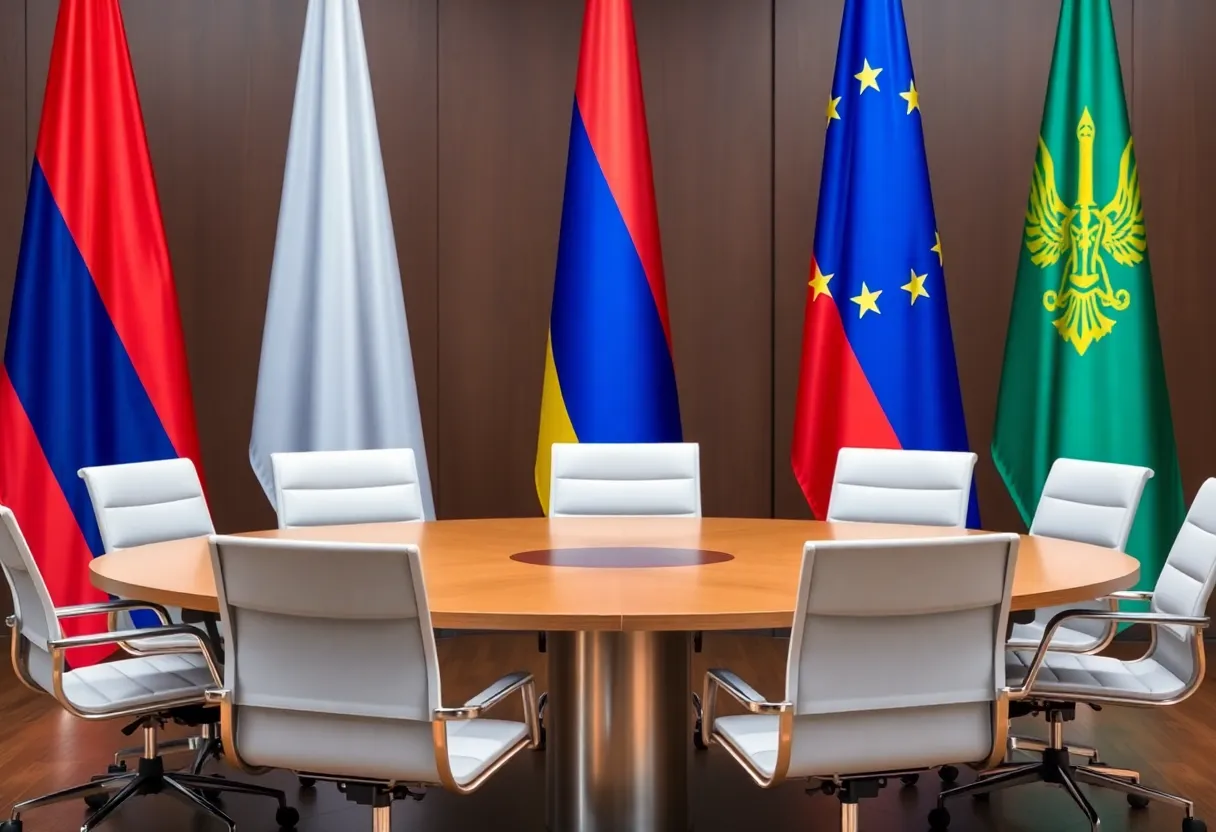News Summary
In a surprising shift, Russian President Vladimir Putin has expressed openness to direct talks with Ukraine, marking a significant change from his prior stance. This proposal includes a potential 30-day halt on strikes against civilian infrastructure. Analysts suggest this shift could be influenced by U.S. pressure for negotiations, yet skepticism remains over Russia’s true intentions amidst ongoing military operations and contentious issues surrounding territorial control. As arguments continue, both nations face pressures to reach an agreement, while the international community watches closely.
Putin Ready for Talks: A Surprising Shift in the Ukraine Conflict
In a surprising turn of events, Russian President Vladimir Putin has signaled that he is now open to engage in direct talks with Ukraine. For the first time since the full-scale invasion that began in 2022, this proposal adds a new layer to the complicated relationship between the two nations. Putin’s willingness to sit down with Ukrainian leaders comes with an offer to halt strikes on civilian infrastructure for a potential duration of 30 days. This move marks a noteworthy shift, considering the Kremlin has previously dismissed all international calls for peace negotiations.
A New Era of Negotiation?
Analyst Will Kingston-Cox pointed out that Putin’s recent statements indicate a significant change in the Kremlin’s previously rigid stance concerning discussions with Ukraine. Historically, Putin has labeled Ukrainian President Volodymyr Zelensky as the head of a “neo-Nazi regime,” which has complicated any potential for meaningful dialogue. By referring to the Ukrainian government as the “Kyiv regime,” it becomes clear that Putin does not recognize Zelensky’s leadership as legitimate, showcasing the deep-seated tensions that have been a hallmark of this conflict.
U.S. Pressure and International Dynamics
Putin’s overture to negotiate appears to come amid rising pressure from the United States for peace talks. This becomes especially apparent in light of statements made by U.S. representatives suggesting that failure to make progress could lead to President Donald Trump withdrawing from negotiations. This concern was echoed by Vice President JD Vance, who recently emphasized the urgency for a decisive agreement while attending events in India.
A planned meeting of representatives from the U.S., UK, and France with Ukrainian officials in London, aimed at discussing a ceasefire, was complicated after a tragic Russian strike that resulted in the deaths of at least nine individuals in eastern Ukraine. Now, lower-ranking U.S. officials will represent the country in these crucial talks, with former national security adviser Keith Kellogg handing over Trump’s “final offer” document.
The Ongoing Military Operations
While talks are on the table, military operations in eastern Ukraine continue unabated. This raises questions about whether Putin’s offers for dialogue are genuine or merely a strategic maneuver. A previous Easter truce aimed at fostering peace was quickly undermined by reports of shelling, highlighting the fragility of any agreements made amid ongoing hostilities.
Contentions Around Territorial Control
A key aspect of this unfolding narrative involves the contentious issue of territorial control. Trump’s proposed peace plan, which includes recognizing Crimea as part of Russia, faces staunch resistance from Zelensky, who firmly opposes any agreements that would legitimize Russian claims over the region or parts of Eastern Ukraine. Zelensky has reiterated that any deal legitimizing Russian control is simply off the table based on Ukraine’s constitutional laws.
Furthermore, whispers in diplomatic circles suggest that the U.S. might be willing to recognize certain territorial disputes. However, both Ukraine and Russia would reportedly need to make significant concessions to move forward in negotiations.
Pressure Mounting on Ukraine
As the discussions unfold, analysts have noted that Ukraine is under increasing pressure to engage with Russia, especially as concerns grow about losing U.S. support if negotiations are stalled. This brings us back to Putin’s recent overtures—could they be a calculated move to paint Russia as a peacemaker in an increasingly complex narrative?
Cautious Optimism from the International Community
Despite these discussions, skepticism remains rife among international allies, particularly within Europe. Many experts doubt Russia’s sincerity when it comes to negotiating in good faith. As this situation continues to evolve, it’s evident that the fundamental disagreements surrounding territorial integrity and national recognition will remain significant hurdles to any potential resolution.
One thing is clear: while the door for dialogue may have been opened, the path to peace is fraught with challenges and remains uncertain.
Deeper Dive: News & Info About This Topic
- BBC News
- France 24
- The New York Times
- The Hill
- Google Search: Ukraine Russia conflict
- Encyclopedia Britannica: Ukraine Russia relations







